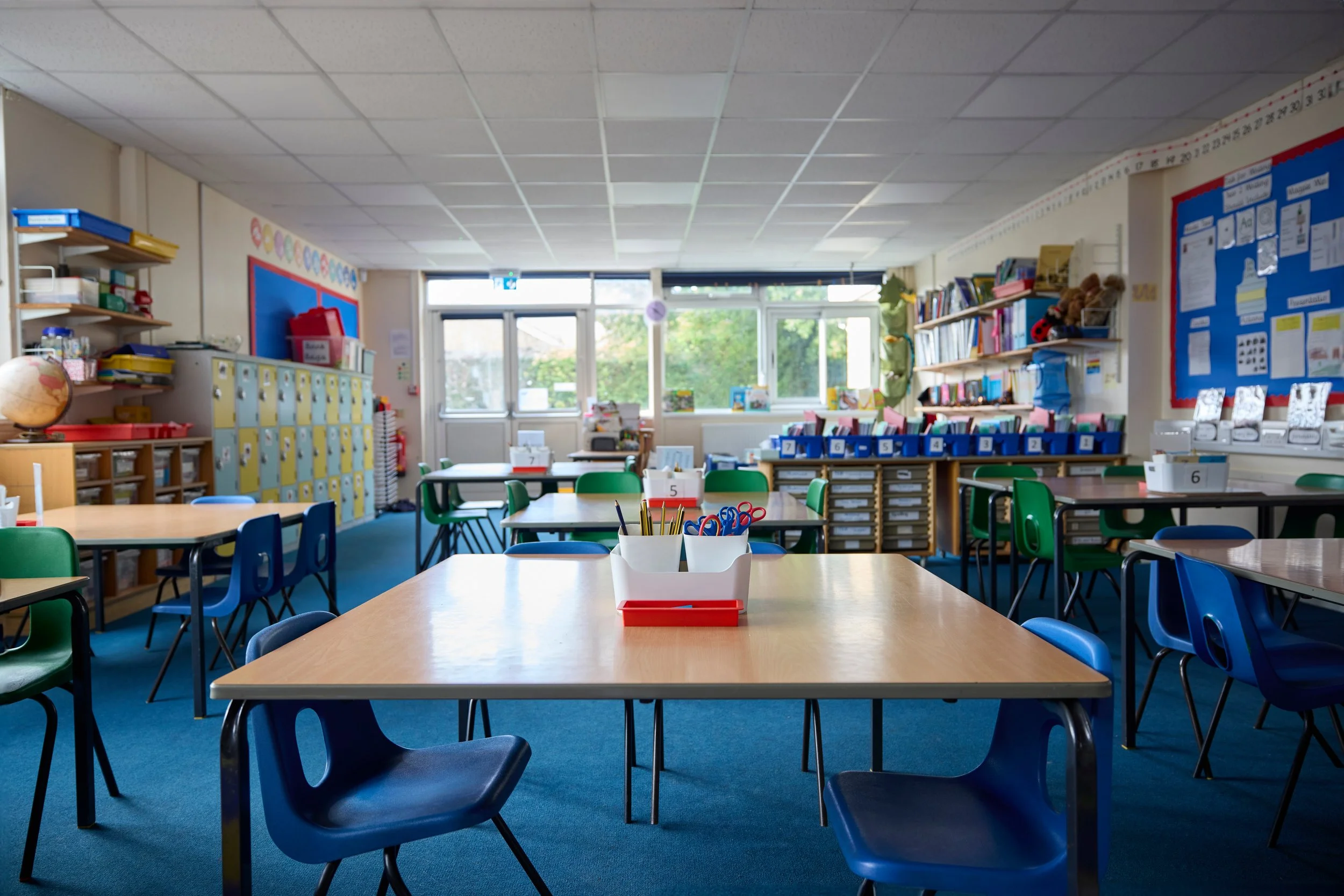
SDL Research Hub

School Climate, Teacher Characteristics, and School Discipline: Evidence From New York City
“Improving school climate is important to reducing disparities in exclusionary discipline, yet the relationship between school climate and school discipline remains poorly understood. Although prior studies have largely relied on students' perceptions to measure school climate, few studies have examined how school contextual factors such as prior disciplinary history or school personnel may affect students' perception of school climate.”

On the School Discipline Horizon: Four Considerations for Disrupting Stubborn Discipline Disparities
As school discipline ventures into the upcoming presidential elections and practitioners grapple with the post-pandemic uptick in student misbehavior, here are four considerations for the school discipline debate in the upcoming school year.

Examining student perceptions of school climate, school personnel, and school discipline: Evidence from New York City
“Improving school climate is important to reducing disparities in exclusionary discipline, yet the relationship between school climate and school discipline remains poorly understood. Although prior studies have largely relied on students' perceptions to measure school climate, few studies have examined how school contextual factors such as prior disciplinary history or school personnel may affect students' perception of school climate.”

The Use of Out of School Suspensions: Prevalence by Race and Region
“Black students experience the highest rates of OSS exclusion of any racial or ethnic group across all four regions.”

The Plight of Persistently Disciplined Students: Examining Frequent Flyers and the Conversion of Office Discipline Referrals into Suspensions
Increasing attention has been paid to rural education policy and research, yet few studies have examined the conceptualization of rural school districts. This study provides a conceptual and empirical examination of the definitions of rural districts. The results illustrate that a common, singular definition of rural is elusive and there is a prevailing notion of rural as “not urban.” Regardless of the operationalization of rurality, there are statistically significant differences across urban and rural districts in terms of their size, complexity, demographic composition, segregation, educational resources, economic structure, economic and social context, and academic and equity-related outcomes. Implications are discussed.

In-School as the Suspension of Choice: Nationwide Prevalence
“Hence we start the state of school discipline with a look at the overall and race-specific prevalence of ISS across the South, West, Midwest, and Northeast.”

Adding Color to My Tears: Toward a Theoretical Framework for Antiblackness in School Discipline
“In this essay, we draw from Black Critical Theory (BlackCrit) to present a theoretical framework that researchers and educational stakeholders can use to specify, study, and understand antiblackness in school discipline.”

The Ties that Bind: An Examination of School-Family Relationships and Middle School Discipline in New York City
Inequities in exclusionary discipline result from a complex process involving students, families, and school personnel. However, little research has explored the topic from parent perspectives. This study used parent survey data from New York City to investigate the link between school-family relationships and students experiencing exclusionary discipline. Results indicate that stronger parental trust toward teachers is connected to a reduced probability that a student receives an office discipline referral, while greater trust in principals is associated with a lower chance of suspension. Several aspects of school-family relationships, such as parent-principal trust, parental involvement, and school outreach and communication, heterogeneously predict a lower likelihood of experiencing exclusionary discipline by student race and special education status. These findings demonstrate the interdependent role of families and school staff in child development and highlight the need to cultivate positive school-family relationships as a potential strategy for addressing exclusionary discipline disparities.

Moving from pathology to politicized care: Examining Black school leaders’ perspectives on school discipline
“In this qualitative case study, we apply the theoretical lenses of politicized caring and internalized racism to 12 semi-structured interviews with Black principals and assistant principals in an urban emergent district in Southeastern U.S. to examine how Black school leaders make sense of and address racial disparities in school discipline. “

Beating the School Discipline Odds: Conceptualizing and Examining Inclusive Disciplinary Schools in New York City
“Racial inequality in school discipline is a salient challenge in the United States. Using New York City as a case, this study examines inclusive disciplinary schools (IDS) or schools that have “beat the school discipline odds”. IDS, median disciplinary schools (MDS), and high disciplinary schools (HDS) have vastly different exclusionary discipline rates for Black and Latinx students (both suspensions and office discipline referrals). “

Up the Down Escalator? Examining a Decade of School Discipline Reforms
“Racial inequality in exclusionary discipline is one of the salient educational equity challenges facing educational stakeholders in the United States (U.S.). This study synthesizes recent empirical evidence (2010–2022) on the effectiveness of school discipline reforms in the U.S. A.”

Navigating Tensions in School Discipline: Examining School Leaders, Teachers, and the Conversion of Referrals into Suspensions
“Racial inequality in school discipline is an important challenge facing educational stakeholders. There is little research on how educators exercise discretion in navigating the disciplinary process from perceived misbehavior to disciplinary consequences.”

School discipline in the age of COVID-19: Exploring patterns, policy, and practice considerations
“In recent decades, racial disparities in K-12 disciplinary outcomes in the United States have garnered considerable attention. Empirical studies have established that schools’ discipline policies and practices play an important role; however, the lack of an integrated theoretical framework inhibits the discourse on bias and discrimination as a contributing factor. This study aims to close the gap between theory and empirical evidence by examining the contributors to the racial disparities in disciplinary outcomes through theoretical lenses.”

The dimensions of school discipline: Toward a comprehensive framework for measuring discipline patterns and outcomes in schools
“The school discipline literature has expanded rapidly in recent decades, yet the conceptualization and measurement of school discipline patterns remains overlooked. In this paper, we present a comprehensive analytic framework to examine school discipline patterns that encompasses school-level metrics that capture the prevalence and disparity in exclusionary discipline and regression-based approaches that examine the likelihood that students experience exclusionary discipline. We apply the framework to New York City and, based on school-level metrics, find that Black students have the highest prevalence and the highest disproportionality. “

Schooling levels and school discipline: Examining the variation in disciplinary infractions and consequences across elementary, middle, and high schools
“School discipline is a significant problem of practice and policy. The differences in disciplinary patterns across schooling levels have received relatively little attention. This study examines the differences in disciplinary infractions and consequences across elementary, middle, and high schools. “

Rac(e)Ing to Punishment? Applying Theory to Racial Disparities in Disciplinary Outcomes
“In recent decades, racial disparities in K-12 disciplinary outcomes in the United States have garnered considerable attention. Empirical studies have established that schools’ discipline policies and practices play an important role; however, the lack of an integrated theoretical framework inhibits the discourse on bias and discrimination as a contributing factor. This study aims to close the gap between theory and empirical evidence by examining the contributors to the racial disparities in disciplinary outcomes through theoretical lenses.”
